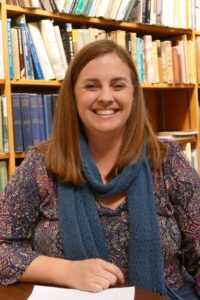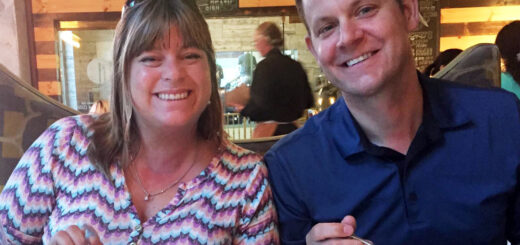Donors help make Christmas party for foster kids, families a special occasion
The families who take in foster children are truly unsung heroes in our communities. They take in children who have come from highly stressful home situations and, with care and love, nurture and support those kids. For the love of kids, foster families make tremendous sacrifices so that kids can remain close to their biological families rather than being sent elsewhere.
The holidays, Scanlon told me, are particularly stressful times for foster kids who are separated from their birth parents and sometimes siblings. This party, which is funded by community donations, is an opportunity for foster kids to have a great time in a safe environment and allows foster parents to connect with each other. Foster parenting, Scanlon said, can be very isolating, so those important connections to other families is critical.
This will be the third year for the Christmas Party, Scanlon said. It’s quite the event with all sorts of games, prizes, food that kids love like hamburgers, corn dogs, French fries and the like. A special part is that residents of Blossom Valley get to interact with these kids, creating a wonderful opportunity for making intergenerational connections.
Rhonda Bellinger, the marketing director for Blossom Valley, said it is an amazing event. The kids are respectful of the residents, when they have a chance to create gifts out of crafts they invariably do so for family members. The kids get their photos taken with Santa (retired businessman and county commissioner Buell Hawkins) and their entire foster family.
“Just thinking about (the event) makes me want to cry,” Bellinger said. More than 50 volunteers donate their time. A number of residents at Blossom Valley make hats for those in need through the Hat Project, an effort launched by retired social worker Aïda Bound.
A committee of people put on the event, including representatives from Blossom Valley, DSHS, the Community Resource Group, Children’s Home Society, Court Appointed Special Advocates (CASA), Stemilt, Sunny FM, along with Bound.
To make this a great event, they could use further donations from the community. Tax-deductible donations can be made through the Community Resource Group. For more information, individuals or businesses can contact Bellinger at Blossom Valley at (509) 293-4950.
I appreciated getting acquainted with Scanlon, a 1997 graduate of Wenatchee High School and daughter of retired law enforcement officer Mike Magnotti. Speaking of unsung heroes, the caseworkers who assist children and families who are in crisis as well as foster parents deserve equal billing. It’s often thankless work, but for people like Scanlon, it is a labor of love. “I want to make a difference for kids,” she told me.
Our valley needs additional foster families as well as people willing to fill in as respite providers for, say, a weekend, Scanlon said. For more information on how you can help, please contact her at (509) 423-0254.
Scanlon and I also spoke of the bad rap that DSHS gets in the media. Much of what we hear through traditional media focuses on things that go wrong and the state Legislature has made the agency a whipping boy. But there are good people like Scanlon who work for the agency and are doing their best to help kids and families.
“I love the direction our agency has been moving in the last couple of years,” Scanlon told me. She said the agency has been implementing programs and policies such as the Family Assessment Response and a shared decision-making process “that help us to respect and honor the families we work with who are going through tough times and struggling to keep their kids safe.,” she said, adding “We work hardtop make sure families have a place at the table and a voice in decisions about their family.”
In addition to working with amazing foster parents, she also said they work with some very resilient and strong kids and parents who rise above addiction, mental health issues, poverty and homelessness to become fully functioning, contributing members of society.
It pays to remember that great people work in difficult circumstances in social and health services. Their good work rarely gets recognized, but that doesn’t mean they aren’t making significant contributions.



